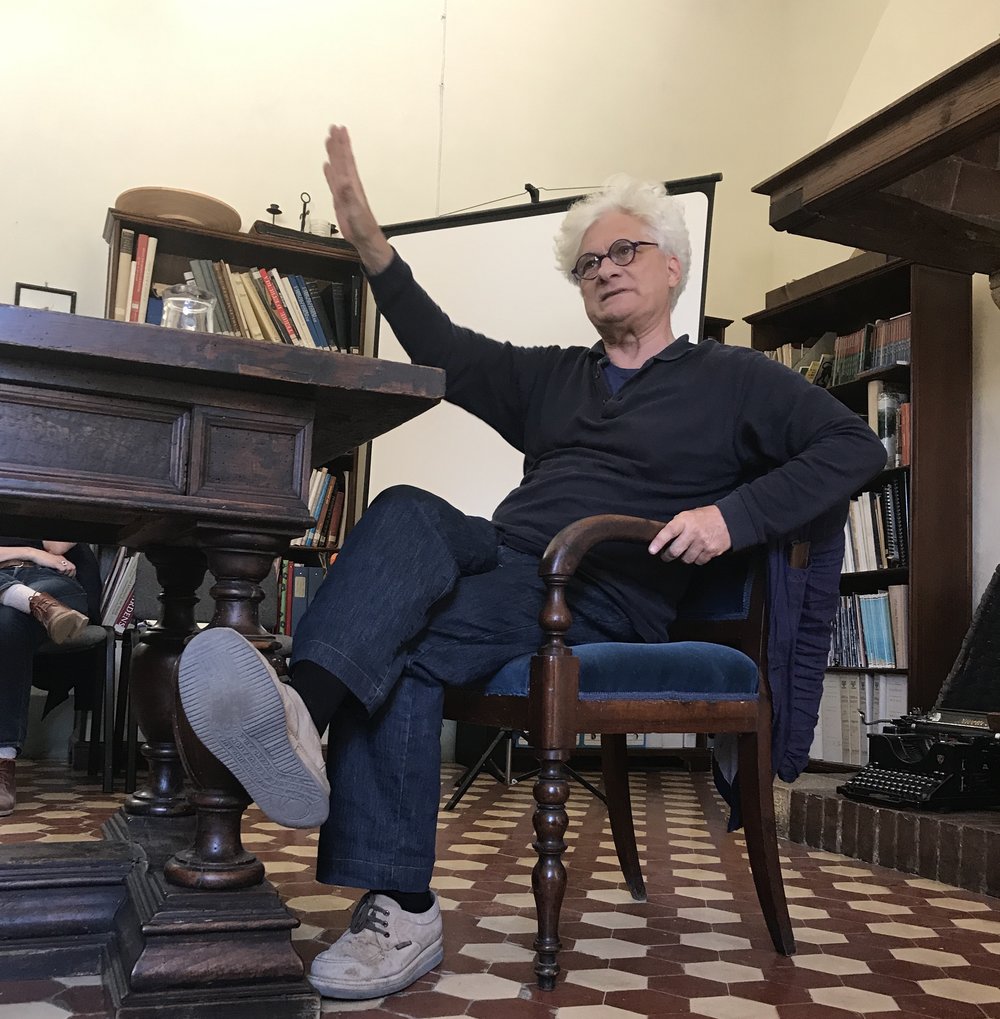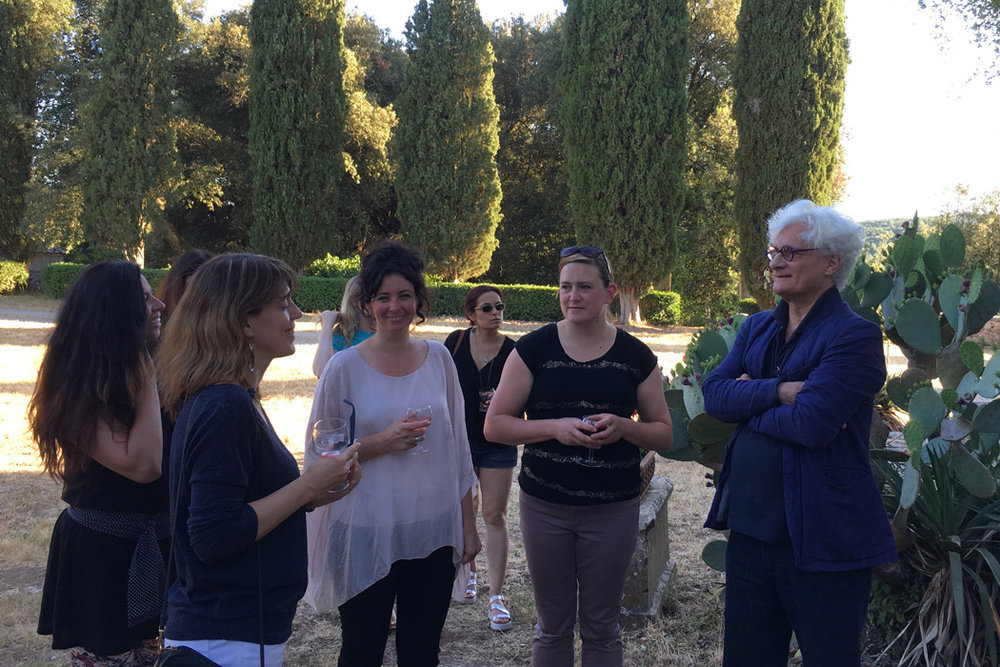On the Baroque: Franco ‘Bifo’ Berardi and Chaos
November 14, 2017
by Ana Fernandez Miranda Texidor, Cohort ’17
In the wake of the events at Charlottesville and Barcelona, I will try to put together words that make sense. More accurately, I am trying to find some sense within these recent events, but I am at a loss for words – meaningful words. Still, so many words are flying around. So many words used to say less and less. Franco “Bifo” Berardi would call the overwhelming production of words in the infosphere “semiotic inflation” – a chaos that can only be danced to in a ritournelle, a rhythm, that belongs to the mind, to the Universe.

Bifo’s lecture at Spannocchia posed a series of questions about the necessity for humans, the only creatures capable of erotic contact of the body as the embodied mind, to dance with chaos. This chaos is not to be feared. It is the possibility of a Deleuzian becoming. Quoting Maravall and Bolivar Echeverría, a poetic-philosophical account of the Baroque was offered as a mindset to understand what is going on right now. The discovery of the Americas in 1492 heralded the slow development of this period. It was a confrontation with a realm altogether different from what was known in the Old World. Europeans felt assaulted by an intolerable quantity of new words, riches, ideas, and unimaginable goods of unthinkable kinds. Expressions had to be invented, utterances tested, sounds and silences forged to translate this shocking otherness.
The Baroque period, so well embodied in Spain – but more thoroughly in Mexico and the broader Latin American experience via La Malinche and Cortez – brought Fray Bartolomé de las Casas to ask the famous Baroque question. In Bifo’s words:
The pilgrim fathers and their followers did not ask themselves the baroque question about the souls of the people they met in the prairies of North America; they exterminated them to the end. The perfect extermination, the perfect holocaust happens in the puritanical territory of rationalism. ‘We are rational people so we destroy everything’. Machiavelli deployed to the New Continent. The catholic colonizers were not good guys, anyway, they asked themselves this baroque question: ‘who are they and what is the way to optimize my colonization? Can I conquer their souls beyond enslaving their souls?’
-Franco “Bifo” Berardi, Spannocchia, Italy, 2017
“I stand for dirty, for lies, for impurity,” he continues, stating a way to be in the world that stems from the creative forces, a Dionysian state of being. Though “Power has been able to submit Fortuna (nature) for 500 years of reign,” Bifo claims that the prevailing feature of the aging American white male Supremacism, (or ‘Supremachism’ as he calls it), is its growing impotence. It is unable to deal with a world of which it can make no sense, one that is altogether different from what it knew.

There is the idea that we artists-philosophers have a task within an impending future where there are no politics. Bifo concludes that “we have to create the subjectivity that may disentangle the existing possibilities and deploy a different organization of the global machine.” Our task is no less than to find a way to fuse poetry and engineering, art and the machine – to embrace the chaos of the unknown in a dance of becoming, rhythmically adapting to the violent otherness of our time and the unseen potentialities of our future.
